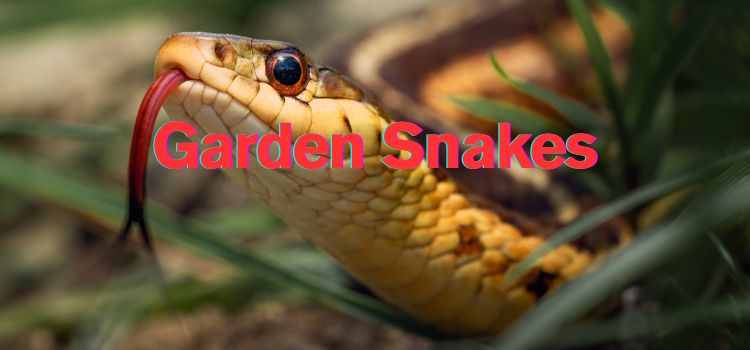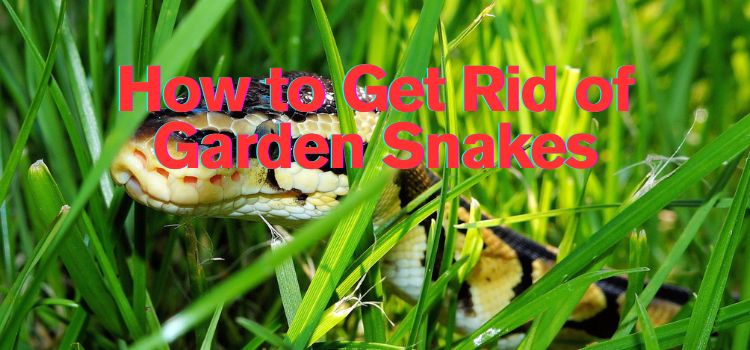As an Amazon Associate, I earn from qualifying purchases.
I know how unsettling it can be to find garden snakes in your yard. As someone who has dealt with this issue firsthand, I can understand the unease these harmless, yet uninvited guests can cause. Garden snakes, or garter snakes, are common in many gardens, often seeking shelter and food.
While they are generally harmless and beneficial to the ecosystem, many people, including myself, prefer not to have them around. You’re not alone if you’re wondering how to eliminate garden snakes.
In this guide, I’ll share simple and effective methods that have worked for me to help keep these slithering creatures at bay. From natural repellents to practical steps for creating a snake-free environment, these tips will help you feel more comfortable in your garden and ensure your space remains safe for you, your family, and your pets.
What Are Garden Snakes and Why Are They in Your Yard?
Garden snakes are a type of non-venomous snake found across North America. They are small, often measuring around 18 to 26 inches long, typically green, brown, or black, with distinctive stripes running down their bodies. They are commonly seen in gardens, under rocks, or in piles of leaves, as they love areas with plenty of shelter and access to small prey like insects, frogs, and rodents.
These snakes are attracted to your yard because it offers them both food and a safe environment. These snakes can help control the population of pests, but their presence can be unsettling when they begin to invade areas where people are present.

Why Do You Need to Get Rid of Garden Snakes?
Some people may not mind sharing their garden with these creatures, but others may find them unsettling, especially when they have children or pets. Even though garden snakes are harmless, the fear of snakes, known as ophidiophobia, is common, and many individuals prefer not to have them in their yards. Additionally, suppose a large number of snakes gather in your garden. In that case, it might indicate that your property is home to an unhealthy population of rodents, which could be a bigger problem.
If you find yourself asking how to get rid of garden snakes, there are several strategies you can use. Let’s look at some of the best, most effective ways.
How Can You Naturally Deter Garden Snakes from Your Yard?
Getting rid of garden snakes naturally is the most humane and environmentally friendly way to deal with the problem. Several methods can be implemented without harming the snakes or disrupting your garden ecosystem.
1. Remove Their Hiding Spots
Snakes hide where they feel safe, such as under rocks, in tall grass, or in piles of leaves. To deter snakes from your property, remove any debris that might be a hiding spot. Trim back bushes,
2. Use Snake Repellent
There are several natural snake repellents available that can deter snakes from entering your garden. These products typically contain strong scents or chemicals that snakes find unpleasant. You can also create your snake repellent by using substances such as:
- Cinnamon – Snakes dislike the smell of cinnamon. Sprinkling ground cinnamon around the perimeter of your garden can help keep them away.
- Clove oil – Similar to cinnamon, clove oil is another effective repellent. Mix it with water and spray it around areas where snakes are commonly seen.
- Garlic—A garlic solution can be sprayed around your garden to deter snakes, as they dislike the smell.
- Ammonia—Some people use ammonia-soaked rags or cotton balls in areas where snakes are often seen. The pungent odour is believed to repel them.
While these natural repellents are often effective, they may need to be reapplied after rain or heavy watering.
3. Install Snake Fencing
If you have a more significant snake problem or want to take extra precautions, installing snake-proof fencing can be a great solution. Snake fencing is usually made of fine mesh or wire, preventing snakes from slithering. When setting up the fence, ensure it is buried several inches into the ground to prevent snakes from burrowing underneath.
4. Keep Your Yard Clean and Well-Maintained
A clean yard is less inviting to snakes. Regularly mow your lawn, trim overgrown vegetation, and remove piles of wood or leaves. Make sure to secure trash cans and remove any food scraps that could attract rodents, as these may, in turn, attract snakes. Keep garden beds neat and remove any potential shelter where snakes could hide.
5. Use Natural Predators to Control Snake Populations
In some cases, introducing natural predators of garden snakes into your yard can help keep their numbers in check. Birds of prey, such as hawks and owls, are natural snake hunters. Attracting these birds to your property by installing birdhouses or providing food sources can help reduce the number of snakes over time.

Are There Any Chemical Methods to Remove Garden Snakes?
While natural methods are generally the most preferred and eco-friendly way to deal with garden snakes, chemical repellents are available on the market. These products typically contain sulfur or naphthalene, which snakes find repellent. However, many of these chemicals can harm other wildlife, pets, and plants in your garden, so it is essential to use them cautiously.
Before opting for chemical solutions, consider whether you can solve the problem using more natural methods. If you use chemical repellents, follow the manufacturer’s instructions and keep the products away from areas where children or pets might contact them.
What to Do If You Find a Snake in Your House?
Occasionally, garden snakes may find their way inside your home. If this happens, it is important not to panic. While snakes can be unsettling, they are generally not aggressive and would rather avoid confrontation. To deal with a snake inside the house:
- Stay calm – Avoid sudden movements. If possible, keep an eye on the snake without getting too close.
- Contain the snake – If it is in a room with a door, close it to keep it contained.
- Call a professional – If you’re unsure how to handle the snake safely, or if it’s in a hard-to-reach place, contact a local pest control service or animal control.
Pro Tip: Always wear gloves and take proper precautions when handling snakes. Even non-venomous snakes can bite if they feel threatened.
When Should You Call a Professional?
If you’ve tried all the methods above and still are dealing with a garden snake infestation, it might be time to call the professionals. Pest control companies can help you assess the situation, provide practical solutions, and safely remove snakes from your property. They can also offer advice on how to prevent future snake problems.
Conclusion
Getting rid of garden snakes can be simple if you take the proper steps. You can reduce the likelihood of snakes in your garden by removing hiding spots, using natural repellents, installing snake fencing, and maintaining a clean yard. Remember, garden snakes can benefit your garden by controlling pests, so consider using humane methods to deter them rather than harming them. If necessary, don’t hesitate to contact a professional for assistance.
Frequently Asked Questions
1. Are garden snakes harmful?
No, garden snakes are non-venomous and are generally not harmful to humans or pets. They are often seen as beneficial to gardens as they help control pests like insects and rodents.
2. How do I know if a snake in my garden is a garden snake?
Garden snakes are typically small, with stripes running down their bodies. They are often green, brown, or black. If you’re unsure, contact a local wildlife expert for identification.
3. Can garden snakes climb walls or fences?
While garden snakes are excellent climbers, they typically do not climb smooth surfaces like walls or fences. Snake-proof fencing, however, can prevent them from entering your yard.
4. What should I do if I see a snake in my house?
Stay calm and avoid sudden movements. Contain the snake in a room, and contact a pest control service to remove it safely.
5. How can I prevent snakes from entering my yard in the future?
To prevent snakes from returning, keep your yard clean and well-maintained. Remove debris, trim bushes, and use natural repellents. Installing snake fencing around your garden can also help.

